Sustaining Tanzania’s Marine Resources: Opportunities and Challenges for Strengthening Co-Management in Coastal Communities
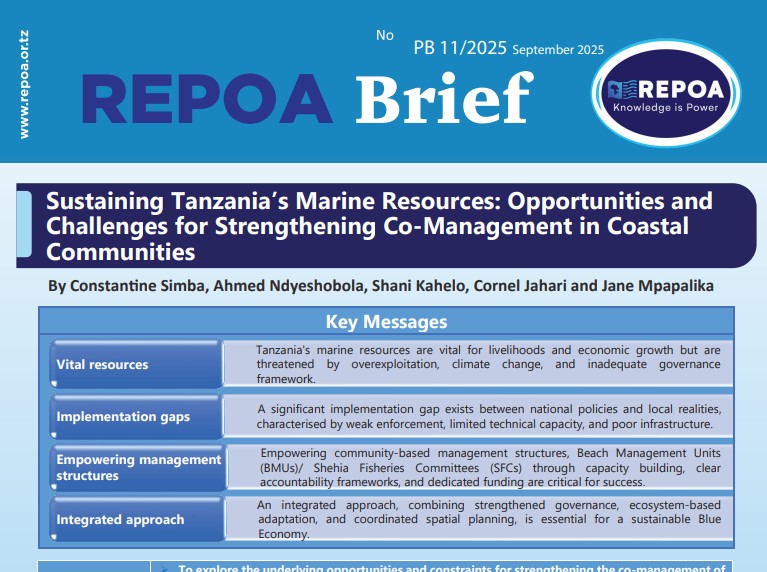
explore the underlying opportunities and constraints for strengthening the co-management of Tanzania’s marine resources in Coastal Communities.
From Shores & Households to Markets: Dynamics of Seaweed Farming in Tanzania
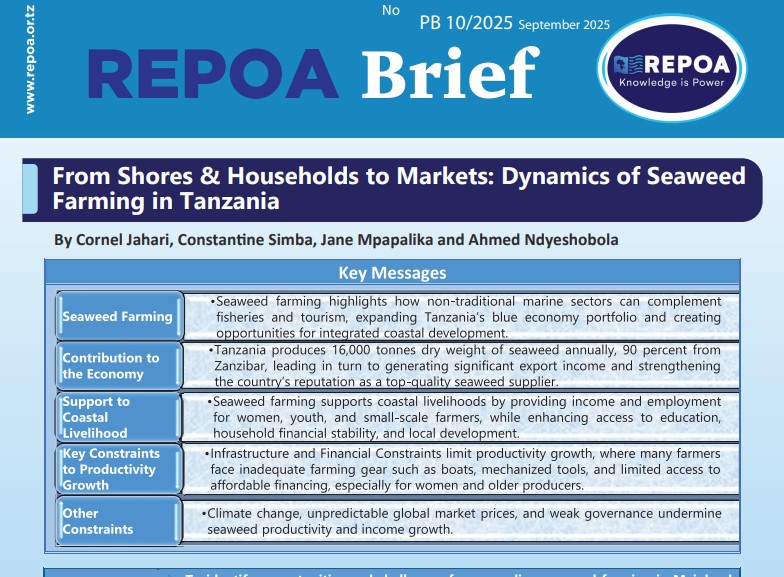
This Policy Brief identifies opportunities and challenges for expanding seaweed farming in Mainland Tanzania and Zanzibar, while strengthening sector resilience. READ ON…!
Unlocking the Blue Economy: Insights from the Fisheries Sector in Coastal Mainland Tanzania and Zanzibar
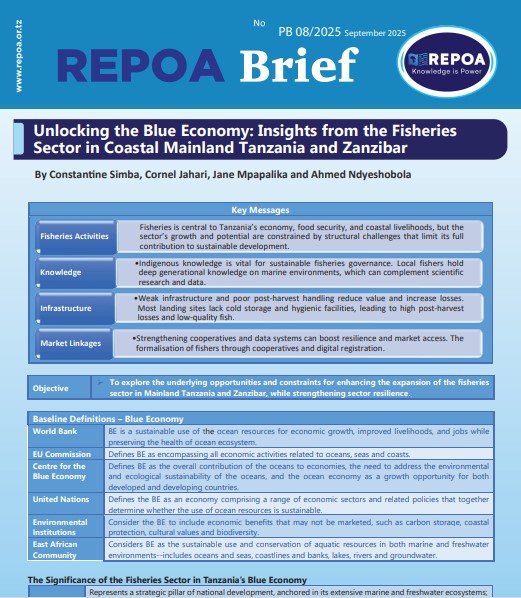
This Policy Brief explores the underlying opportunities and constraints for enhancing the expansion of the fisheries sector in Mainland Tanzania and Zanzibar, while strengthening sector resilience. READ ON…!
Assessing Labour Conditions in Solid Waste Management: A Tanzanian Case Study
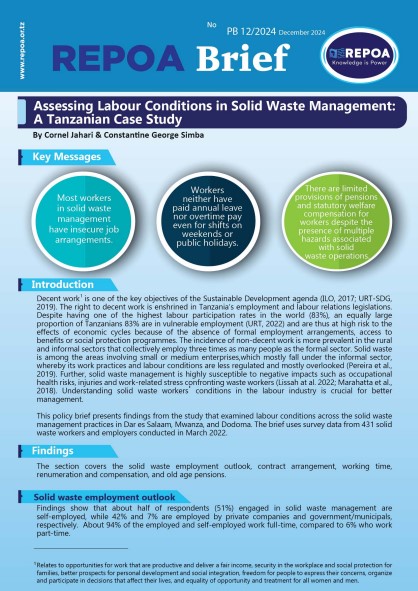
Solid waste workers are crucial to maintaining public health and environmental sustainability, especially in urban areas. Nevertheless, findings suggest that workers are exposed to several working conditions and challenges, including low salaries to cover household expenditures. They are hardly compensated whenever they work overtime, nor are they entitled to annual leave. Solid waste workers often […]
How to overcome rent seeking in Tanzania’s skills sector? Exploring feasible reforms through discrete choice experiments
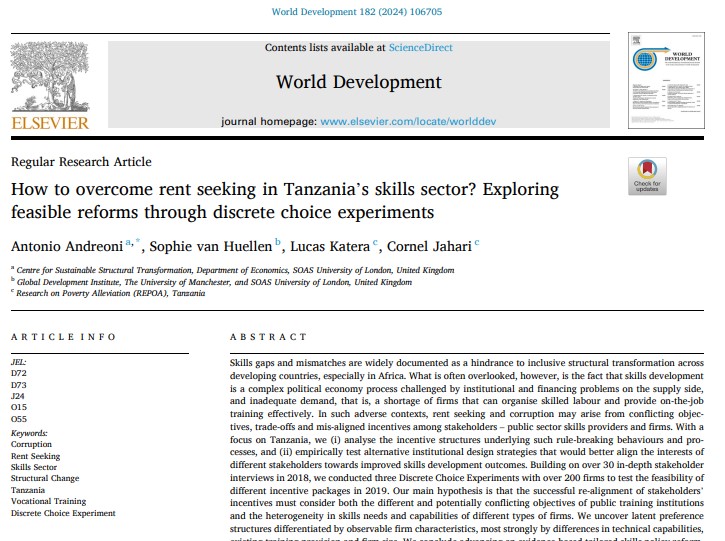
Skills gaps and mismatches are widely documented as a hindrance to inclusive structural transformation across developing countries, especially in Africa. What is often overlooked, however, is the fact that skills development is a complex political economy process challenged by institutional and financing problems on the supply side, and inadequate demand, that is, a shortage of […]
Dignifying Well-being of Women: Labour Conditions in Solid Waste Management in Tanzania Cities

Gender disparities readily appear across the waste management value chain, reflecting prevalent imbalances in the socioeconomic structures. Women are predominantly situated in low-pay, insecure roles, and insufficient attention is directed toward addressing their needs during the maternity period. There is an urgent necessity to integrate a gender perspective into decision-making and policy formulation within the […]
Investing in Tanzania’s People – Valuing the U.S. Tanzania Partnership for Prosperity
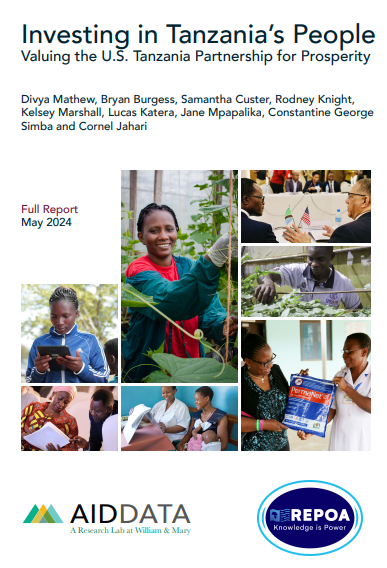
This study was conducted as a collaboration between REPOA and AidData, a U.S.-based research lab at William & Mary’s Global Research Institute. This research was made possible with generous support from the United States Department of State. The findings and conclusions of this report are those of the authors alone and do not necessarily reflect […]
Urban Solid Waste Management in Tanzania: Our Work, Our Health

This policy brief examines health and safety conditions in Tanzania’s urban solid waste management practices. The analysis draws from a survey of 431 solid waste workers conducted in 2021 in Dar es Salaam, Mwanza, and Dodoma city councils. Read the full details below…
The Multi-Apping Dilemma: Safety and Earnings among Tanzanian Platform Workers
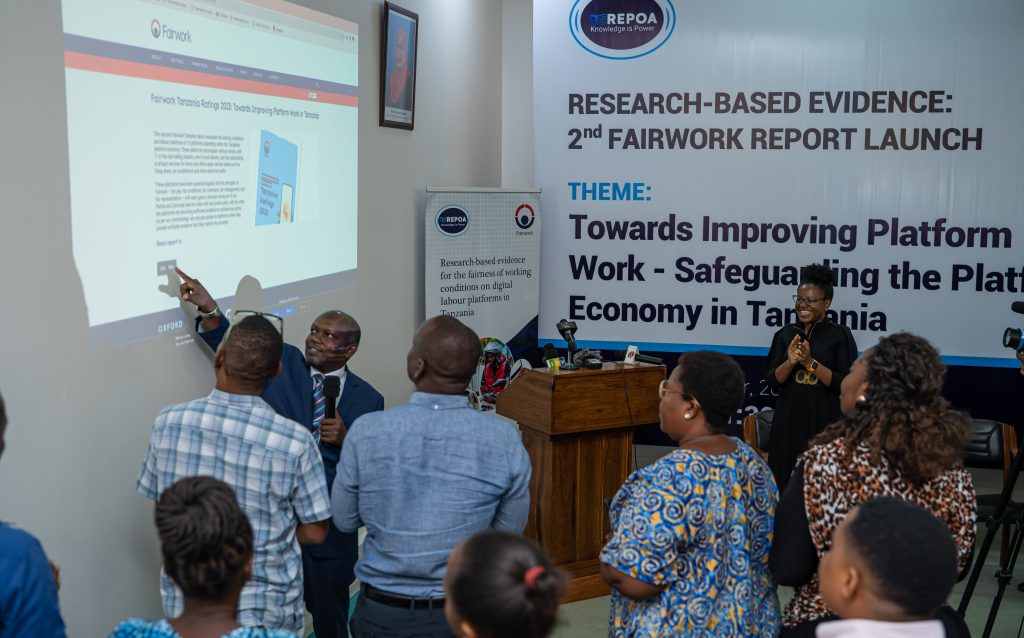
The safety risks of prolonged working hours in Tanzania’s platform economy are not thoroughly examined. This policy brief highlights the rise of multi-apping among Tanzanian platform workers and its impact on earnings and safety. It explores the trade-off between increased income prospects and safety risks. The brief offers stakeholders—including policymakers, platform operators, and worker associations—actionable […]
The EAC at 18 and beyond: Tanzanians yearn for improved cross-border movement of people
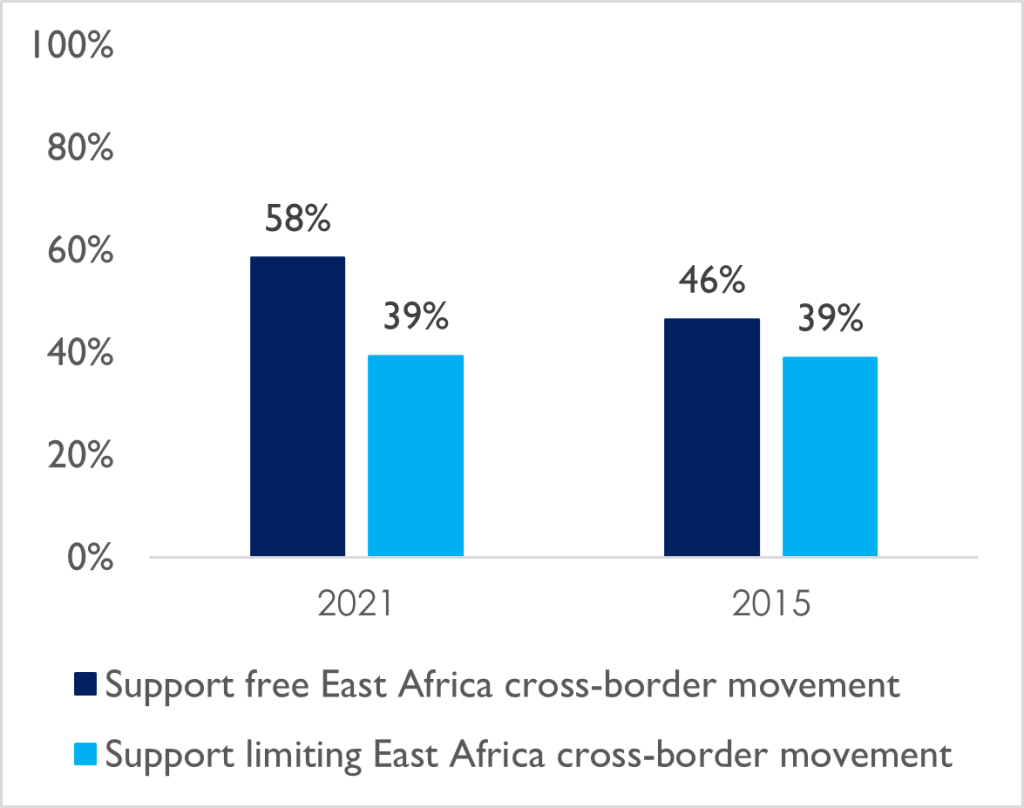
This policy brief presents the summary of the findings from the Round 8 of the Afrobarometer survey conducted in Tanzania in March-April 2021 concerning citizens’ perceptions on the free movement of people within East African borders. An increasing number of Tanzanians in both urban and rural areas support free movement of people for trade and […]
Tanzanians have mixed views on free cross-border trade but support government autonomy in handling its internal affairs
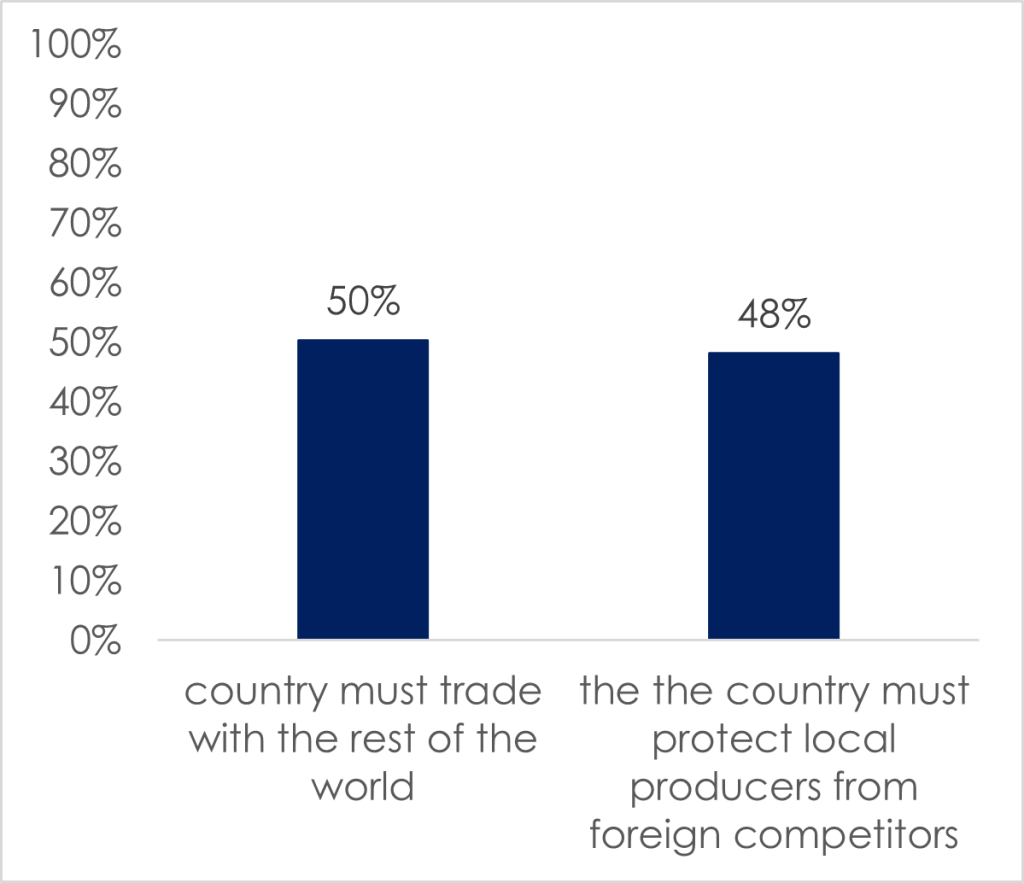
On this Policy Brief, the findings as picked from the Afrobarometer Survey Round 8 conducted in March and April 2021 show that Tanzanians are divided on supporting free trade. They, however, value the need of having controlled foreign traders in the country. Read the full details into this brief as linked further below. REPOA is […]
Concerns over sovereignty of development finance: Tanzanians want local solutions and local control
On this Policy Brief, the findings as picked from the Afrobarometer Survey Round 8 reveal that Tanzanians value more independent pursuit of development than conditional foreign financing. REPOA is Tanzania’s Afrobarometer country partner. The following are the key policy recommendations: Please read the full details of this Afrobarometer survey related brief just below…
Development Minerals: Truck Drivers’ Working Conditions in Tanzania
This policy brief explores the working conditions of transporters, truck drivers in particular in the development mineral value chain. It uses data collected through questionnaires and Focus Group Discussions (FGDs) conducted in nine districts of Dar es Salaam and Coastal regions in September 2020. Truck drivers in the development minerals sub-sector play a key role […]
Development Minerals in Tanzania: Accounting for missing women in the low-value minerals
This policy brief presents findings from primary research of the sub-sector in two districts of Coast region (Chalinze and Kisarawe) and two districts of Dar es Salaam region (Kigamboni and Kinondoni). Despite the immense supply of key inputs to industries and construction, little is known of development minerals sub-sector’s size and its contribution to the […]
Business environment and enterprise
competitiveness, diversification and value chain
This policy brief outlines some key findings from a survey of Nordic firms operating in Tanzania conducted in October and November 2019.The survey comprised of quantitative and qualitative assessments of perceptions of 105 sampled firms on the business environment. 65 firms responded to the quantitative survey, and a snowball sample of 30 firmsyielded 60 per […]
The effects of institutional bottlenecks on
enterprise development and competitiveness in
productive sectors in Tanzania.
This policy brief flags areas of crucial policy concerns in the context of the prevailing legal and regulatory framework for enterprise development and competitiveness. It draws on analyses and findings from REPOA’s Research Project on Institutional Analysis of Enterprise Development and Competitiveness (EDC) in Tanzania. The research draws on analyses of primary and secondary data […]